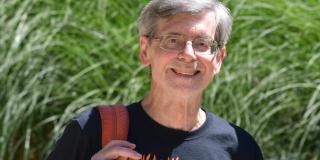In recent research, studies found that Americans use news coverage of groups such as the poor and racial/ethnic minorities to shape their perspectives on these groups. Studies further demonstrated that these groups are unfairly treated covered by the media. Imaani El-Burki, professor of practice in the department of journalism, examines media portrayals of racial minorities and economically marginalized groups as well as the social and political impact of such depictions. Her recent work moves into new media to explore the dialogue surrounding opinions toward the poor and attitudes on poverty as they relate to discussions about race. In an age driven by technology, the dialogue is no longer local, she says.
“New media has created a globalized context,” says El-Burki, who is also associate director of the Africana studies program. “It’s important to understand how new media spaces are, or are not, giving people a new voice to combat dominant images and representations. Whether it’s racism, or classism, or sexism online, we need to understand the different dynamics that are showing up.”
Analyzing mediated discussions in online newspapers and political blogs, El-Burki argues that whether or not the poor are identified as a group deserving of societal support depends upon how the group is defined. El-Burki found that “When the poor are defined as those deserving of social support or poor due to circumstances beyond their control, outside entities, such as the government, are identified as the source of their financial hardship. When the poor are identified as responsible for their hardship, either individually or collectively via dysfunctional culture, societal help is unnecessary. “Often times, those considered responsible for their own financial hardship are racial minorities who are poor.” She found that both conservative bloggers and liberal bloggers use a moral basis for their discussions of the poor. While conservative bloggers see the poor as abandoning their social contract by not adhering to American values, personal responsibility and individual work ethic, liberal bloggers appear to see the poor as continuously falling victim to an unequal social system designed to facilitate their failure. Her examination of discussions in print and online are important for understanding how poverty is framed and discussed within the media.
“Everywhere we go we have our phones, and people have access to the media on their phones. We’re really bombarded with messages in a way we haven’t been in the past and are in a space to be the producers of those messages. NBC may produce a story, but we can repost it and frame it in a different way by including additional commentary about it. The technology has penetrated our lives in a way that is both fascinating and scary at the same time.”
El-Burki’s research interest create a strong connection to Lehigh University’s prestigious $500,000 challenge grant from the National Endowment for the Humanities. The Africana studies program is working to create an endowment to expand Lehigh’s Africana studies program, through curriculum development, increasing public humanities initiatives and strengthening the program’s community partnerships in an effort to explore public concerns and a variety of social issues including race, politics, gender, and religion. The Africana studies program will use endowed funding to expand partnerships into long-term collaborations and to begin working with new partners in the Lehigh Valley and beyond. Currently, Africana Studies is cultivating local partnerships with the Greater Shiloh Church in Easton, Liberty High School in Bethlehem, and PBS-39.
If you would like to learn more about the NEH Challenge Grant or become engaged with the Africana Studies Public Humanities Initiative at Lehigh University, contact Brad Superka, director of development, at brs209@lehigh.edu or 610-758-6197.






